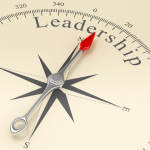When Peter Salovey and John Mayer came up with the term “emotional intelligence” in 1990 and was followed up by Daniel Goleman’s well-known work “Emotional Intelligence” first published in 1995, I wonder if they ever realised how much that work would form the backbone of so much material about leadership in the decades that followed.
In over 30 years of working with thousands of leaders in over 130 organisations across the globe and virtually all sectors of working life, I somewhat regret the use of the word “intelligence” in the term and the attachment to it of “EQ” as if it were a comparison with “IQ”. I think it lets some leaders off the hook. I can hear the arguments now… “I am not naturally empathetic”, or “I just don’t have that skill”, “It’s harder for me than for some others”, “Being empathetic is not authentically me” as they justify not behaving as they would ideally like to have behaved in certain circumstances.
I want to argue here that emotional intelligence (including empathy) is a practice, not just a skill: a practice that we can all develop just as we develop an exercise routine or a mindfulness practice, for example. It might help if you think of the term “intelligence” not as an inner attribute, but more like when it is used in security settings; something like “our intelligence tells us that the enemy are about to…” – an inner James Bond, as it were. Our emotions are simply information that help us understand ourselves and others better and help us choose how to then move forward.
For a moment, pay attention to this “machine” that you are driving – your combined body and mind. Pay special attention to its attributes as if you were standing apart from it for a while. The way that you naturally breathe in oxygen and how your lungs and blood system feed that oxygen around your body. The way your muscles contract and expand to allow effective conscious and unconscious movement. The way your senses combine to inform you – smell, taste, touch, sight, hearing – and how your system reacts chemically and physically to, in effect, keep you safe and reward you as you sense whatever threatening or secure position you might be in.
All of this is information available to you, not only about you and your situation, but also about others who are giving off unconscious subliminal messages, and about your context. Now imagine actively tapping into this information. The information is available to all of us naturally (we would not survive if it wasn’t). Tapping into it consciously takes practice.
It might help to have a very simple description of emotional intelligence (forgive me please, all you experts, academics and the deep professionals in this field for what accuracy I might lose in the interests of brevity and simplicity). In my mind it is broadly made up of two aspects: one in connection with self and, the other, in connection with others.
In connection with self, emotional intelligence is enhanced the more aware we are of our own thinking and feeling, of what triggers our reactions, what filters we put those triggers through to “create” changes in state and how our state then causes us to want to react. We could call this self-awareness. For example, I am more emotionally intelligent if I can temper or regulate that reaction – choose how I respond rather than just automatically lash out or withdraw perhaps. This “ability” is enhanced when we are better able to understand and temper our filters and when to channel my emotion rather than let it drive. Notice that I use “temper” or “regulate”, not “control” – which implies that emotions are wrong and that they need stifling. Anyway, this often has the opposite effect: “I must not giggle in church” usually ends up in me giggling even more.
I am more emotionally intelligent when I can express my emotion or my state in a way that truthfully lets the other know how I am really feeling without me losing control of my own behaviour and demeanour. My professional supervisor lost two of his sons in recent years – in the moments when he told me of his raw grief, he did so in a way that I really got it, while he still chose his demeanour and without him breaking down in any way.
In connection with others, emotional intelligence is enhanced the more that we can detect that someone is in a certain emotional state, the better we can understand why they might be in that state (we call this empathy) and the more, through our own being and actions, that we can influence their state in a way that serves them. By the way, empathy is often confused with sympathy – where I might feel for them or about them – which is not the same thing.
When I look at all of the above attributes, with the possible exception of detection, I see practice (not skill) as the most significant way of enhancing my capability to choose how I best deal with the myriad of different circumstances I am faced with as a leader.
OK, so what consciously helps me improve my practice? Well, how about a few simple steps:
- Start noticing. Awareness is one of our greatest gifts. And while noticing, notice what you notice each time and how that grows over time.
- Pay increasing attention to your body and its state – not just your mind and your thinking. What is the raw data telling you?
- Bring curiosity, not judgement of yourself or the other. What information is available here (rather than what should or should not be happening)? And while being curious, marvel at the new information available to you!
- When you notice your state (anger, fear, anxiety, joy) start practicing channelling it rather than just reacting. “OK so I am angry – what do I choose to do with this anger?” – start giving yourself more choice.
- When you get some space to reflect, start unpicking that emotion what was the event or trigger and what “filter” did I put that through that created it? What is untrue or unknown in my filter that, by shifting slightly, I might not experience my unwanted emotion in the same way? And what about the other person? How do I help them understand their filter better too?
So, perhaps it doesn’t matter whether empathy is natural or not. There are certainly elements of it we all have naturally in our wonderful body/mind systems but accessing it usefully, I would argue, takes practice.




